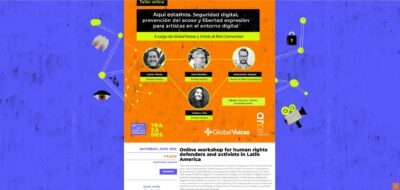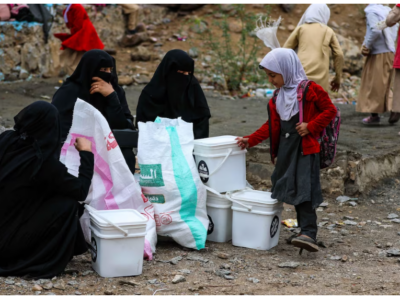
Screenshot of the fesival's website with information on the online workshop which Melissa Vida was part of. From: Instituto Multimedia DerHumALC. Source and rights: Instituto Multimedia DerHumALC.
Melissa Vida, Global Voices’ Latin America Editor and Civic Media Observatory Writer, hosted a talk on digital authoritarianism in Latin America and tools to combat it. She invited GVers Carlos E. Flores from Ecuador and José Luis Bénitez from El Salvador, who spoke about the techniques and narratives behind the trends of digital authoritarianism in their countries. The three were joined by a special speaker from Nicaragua, who remained anonymous for digital security reasons. Nicaraguan filmmaker Gloria Carrión also participated in a recorded video. The workshop was organized by the International Human Rights Film Festival (FICDH) in Buenos Aires Argentina on June 3, 2023.
These GVers had worked with Global Voices’ Unfreedom Monitor, a research project focused on following trends and narratives about digital authoritarianism in 20 countries worldwide. For example, you can see Ecuador's and El Salvador's reports. Our researcher for Nicaragua has worked with the Civic Media Observatory, a project focused on analyzing major narratives happening in a select group of countries at a time.
The panelists have talked about how digital authoritarian trends do not only happen in authoritarian contexts, such as in Nicaragua, but also in democratic settings, like in Ecuador. Also, they have highlighted how quickly a government can turn to increasingly authoritarian measures, such as El Salvador. They have also discussed what kind of tools actors use in digital authoritarianism, such as curtailing freedom of the press through legal means and harassment, targeted and general surveillance of the population, internet blockings and disinformation. How state actors try to convince the population of the necessity of these measures was also discussed; for example, do they try to justify these means or do they ignore them?
In its second portion of the workshop, Alessandro Zagato of Artists at Risk Connection presented a practical and interactive section and taught the participants tools to prevent and act upon threats to freedom of expression, online censorship and virtual espionage.



